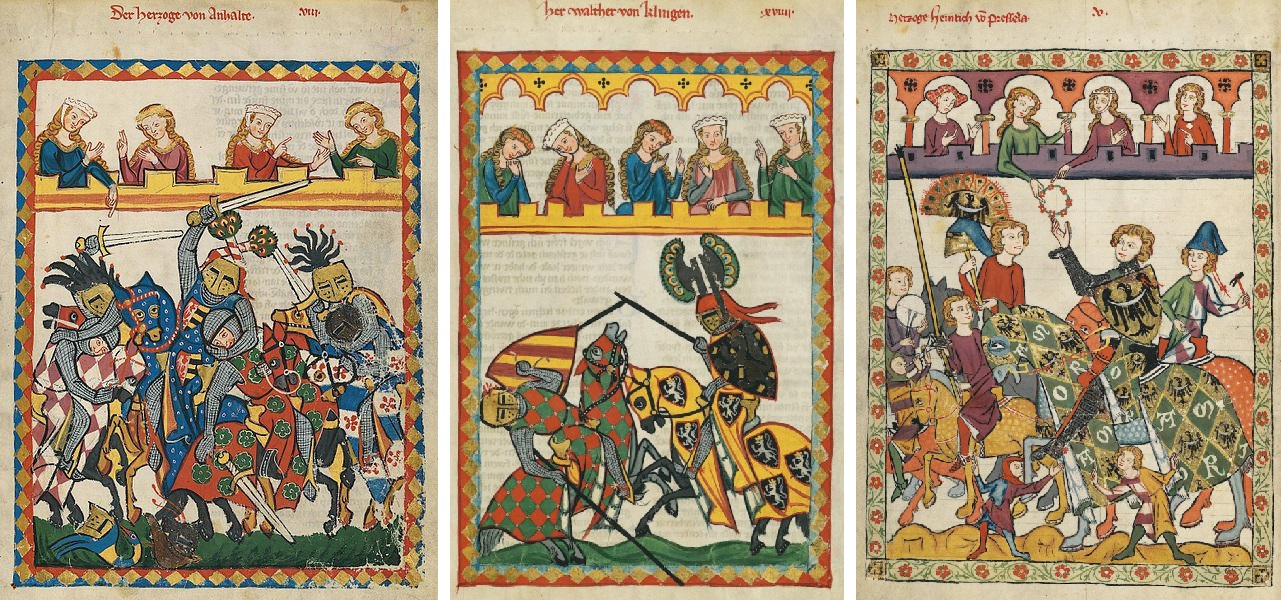
“At the ideal coronation of king Arthur, just mentioned, a tournament is described as exhibited in its highest splendor.
‘Many knights, says our Armoric fabler, famous for feats of chivalry, were present, with apparel and arms of the same colour and fashion. They formed a species of diversion, in imitation of a fight on horseback, and the ladies being placed on the walls of the castles, darted amorous glances on the combatants. None of these ladies esteemed any knight worthy of her love unless he had given proof of his gallantry in three fevered encounters. Thus the valour of the men encouraged chastity in the women, and the attention of the women proved an incentive to the soldier’s bravery’
Here is the practice of chivalry under the combined ideas of love and military prowess, as they seem to have subsisted after the feudal constitution had acquired greater degrees not only of stability but of splendor and refinement.
“And hence, even in time of peace, they had no conception of any diversions or public ceremonies, except of the military kind. Yet, as the courts of these petty princes were thronged with ladies of the most eminent distinction and quality, the ruling passion for war was tempered with courtesy.
The prize of contending champions was adjudged by the ladies; who did not think it inconsistent to be present or to preside at the bloody spectacles of the times ; and who, themselves, seem to have contracted an unnatural and unbecoming ferocity, while they softened the manners of those valorous knights who fought for their approbation.
The high notions of a noble descent, which arose from the condition of the feudal constitution, and the ambition of forming an alliance with powerful and opulent families, cherished this romantic system. It was hard to obtain the fair feudatary, who was the object of universal adoration. Not only the splendor of birth, but the magnificent castle surrounded with embattled walls, guarded with massive towers, and crowned with lofty pinnacles, served to inflame the imagination, and to create an attachment to some illustrious heiress, whose point of honour it was to be chaste and inaccessible.
And the difficulty of success on these occasions, seems in great measure to have given rife to that sentimental love of romance, which acquiesced in a distant respectful admiration, and did not aspire to possession… Chivalry by degrees was consecrated by religion, whose authority tinctured every passion, and was engrafted into every institution, of the superstitious ages ; and at length composed that familiar picture of manners, in which the love of a god and of the ladies were reconciled, the saint and the hero were blended, and charity and revenge, zeal and gallantry, devotion and valour, were united.
“But the principal subject of the poems, dictated in great measure by the spirit of chivalry, was love: especially among the troubadours of rank and distinction, whose castles being crowded with ladies, presented perpetual scenes of the most splendid gallantry. This passion they spiritualifed into various metaphysical refinements, and filled it with abstracted notions of visionary perfection and felicity. |